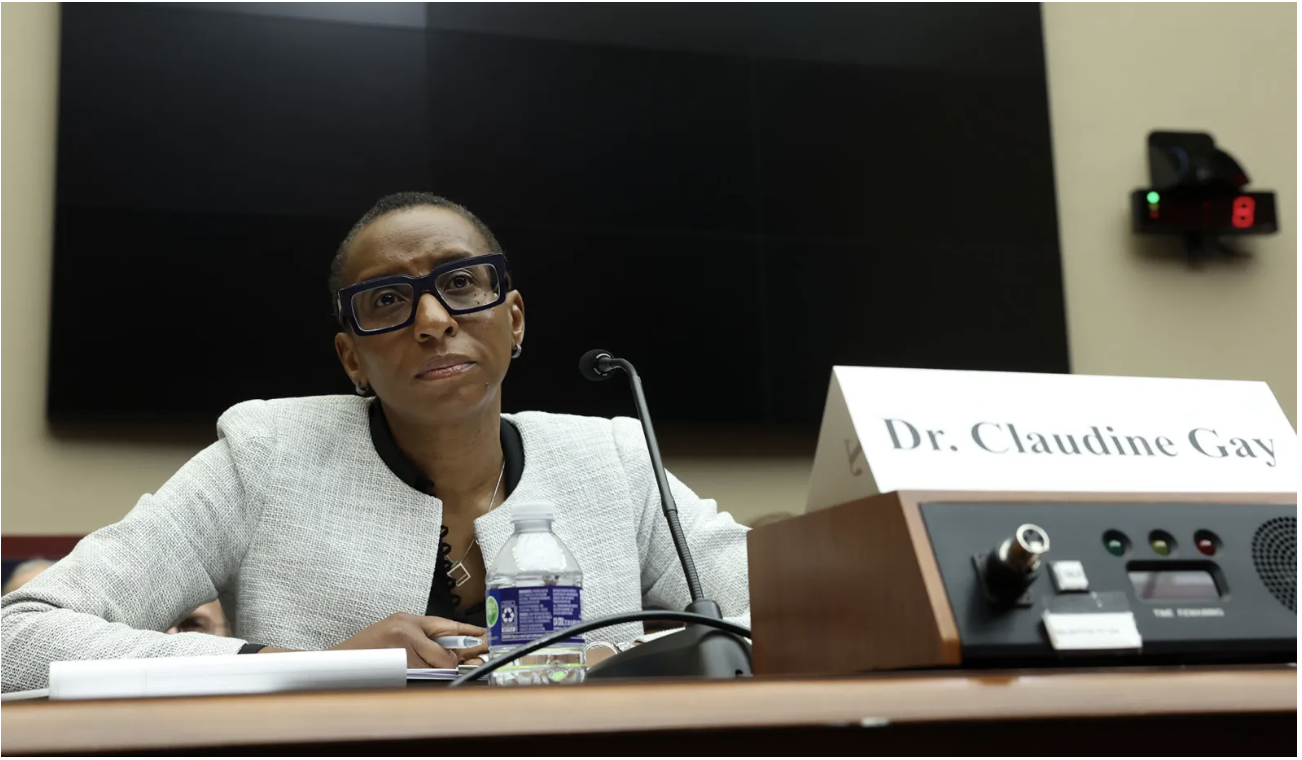By: Charles C. W. Cooke – nationalreview.com –
Let’s not lose sight of the significance of this outcome.
I have heard it lamented in recent days that, despite the scale and consequence of the evidence that was presented against her, the removal of Claudine Gay from the presidency of Harvard University still took “far too long.” This, undoubtedly, is true. Had Gay been a student, she would have been removed 15 seconds after the first tranche of documents was made public. Had Gay been a conservative, she’d have been summarily launched into the sun. Nevertheless, what seems important about this case is not that it confirmed once again that our elite institutions are playing Calvinball, but that, despite the best that they could throw at it, Harvard was unable to make the objections to Gay’s behavior disappear into thin air.
Harvard lost.
This was not for want of trying. On the contrary: Every card in the pack was played, played, and played again. Gay’s critics were accused of racism and of misogyny, and of every foul combination of the two. Her conspicuous plagiarism was denied, redefined, falsely investigated, and ultimately recast as a tool of politics or of privilege. Her critics were attacked and maligned as the wrong sort of people, to whom a victory could not possibly be accorded. Even Barack Obama got in on the action, lobbying Harvard to stay the course.
But Harvard lost.
This, in my estimation, is a good sign. The fruits of our institutions are seen far and wide, but decisions such as these are still made in the rarified cloisters of old. There were just a handful of people on the team that tried to preserve Gay’s job, and even fewer on the team that wanted her gone. Often, this arrangement works to the advantage of the clerisy, which, via its magic incantations (“racist!” “privilege!” “cis!”) is able to cow its critics into submission and then stonewall until their criticisms go away. Here, though, that approach failed. Nobody believed that Gay’s plagiarism was the fault of those who had noticed, and nor did they much care that the usual crew called them names. As a result, the dissenters’ ranks grew, until, eventually, the story was being covered in the mainstream press, moderate members within the academy had been convinced of its importance, and the dead-enders who had been charged with preserving the status quo began to look rather silly. “This isn’t about plagiarism or antisemitism,” Representative Jamaal Bowman tweeted out, “This is about racism and intimidation.” To which the obvious rejoinder is, “No it’s not.”
And so, Harvard lost.
Even now, there is only so far that silliness can take a group of people before they isolate themselves beyond all repair. Once her acolytes had broken that plane, Claudine Gay was left with nowhere to go. The average American was not going to side with her; the staff at lesser universities could see that she was guilty as sin; the local pipefitters union would have laughed her out of the bar. All in all, the Long March through the Institutions has been a considerable boon to the progressive movement in the United States, having granted it great gobs of cultural and political power for which it has not had to compete at the ballot box. But, as the last couple of weeks have demonstrated, there still exist some limits on this power, and one of those limits is that one will not get away indefinitely with being a corrupt, underhanded mediocrity. Claudine Gay had no obvious virtues to begin with. It is perhaps possible for such a person to get away with one act of brazen public dishonesty within a single fortnight, but two, like Wilde’s mislaid parents, starts to look like carelessness.
That Harvard lost this one ought to serve as a warning to those who have convinced themselves that the purpose of the American citizenry is to furnish a few members of a distant caste with ever-increasing tithes and never to ask how they are being spent. Commenting on the affair, Khalil Gibran Muhammad, “a professor of history, race and public policy at the Harvard Kennedy School,” told the New York Times that the architects of Claudine Gay’s ouster “will only be emboldened by Gay’s resignation.” If, by this, Muhammad means that they will no longer be willing to tolerate brazen double standards, open racial discrimination, and the subjugation of the entire human experience to a vicious scheme of antediluvian identity considerations, then he is absolutely correct. They will be emboldened, and they deserve to be. Claudine Gay did what she was accused of having done, and nobody has denied it. The critics were the good guys. Let’s hope they come back for more.
…
To see this article in its entirety and to subscribe to others like it, please choose to read more.
Source: The Important Thing Is Harvard Lost | National Review
 Listen Online
Listen Online Watch Online
Watch Online Find a Station in Your Area
Find a Station in Your Area








 Listen Now
Listen Now Watch Online
Watch Online
